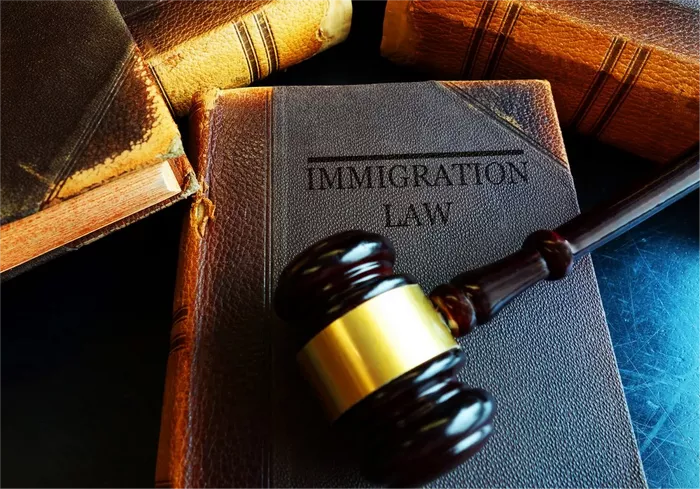Immigration law is a complex and often contentious area of legal practice. One of the most significant consequences of violating immigration laws is deportation, which involves the forced removal of individuals from a country. While there are various grounds for deportation, one reason stands out as the most common across many jurisdictions: immigration violations. In this article, we will explore the intricacies of immigration law, the reasons for deportation, and the factors contributing to its prevalence.
Understanding Deportation
Deportation, also known as removal, is the legal process through which individuals who are not citizens or lawful permanent residents of a country are expelled from that country. It is typically carried out by immigration authorities following a formal legal procedure. Deportation orders can result from various violations of immigration laws, ranging from unauthorized entry to criminal offenses.
The Most Common Reason: Immigration Violations
Among the multitude of reasons for deportation, immigration violations emerge as the most common cause across many jurisdictions worldwide. Immigration violations encompass a broad range of infractions, including:
1. Unauthorized Entry: One of the primary grounds for deportation is entering a country without proper authorization or documentation. This includes crossing borders illegally or overstaying a visa.
2. Violation of Visa Conditions: Individuals who fail to comply with the conditions of their visa, such as working without the appropriate work visa or overstaying the duration permitted by their visa, may face deportation.
3. Criminal Offenses: Committing certain criminal offenses, including but not limited to drug offenses, violent crimes, and fraud, can lead to deportation, even for individuals who are lawful permanent residents.
4. Immigration Fraud: Providing false information or documentation to immigration authorities, such as fraudulent marriage for immigration purposes or misrepresenting qualifications, can result in deportation.
5. Failure to Depart: Individuals who are ordered to leave a country voluntarily but fail to do so may be subject to deportation.
6. Public Charge Grounds: In some jurisdictions, individuals who become reliant on public assistance programs may be deemed inadmissible or deportable on public charge grounds.
Factors Contributing to the Prevalence of Immigration Violations
Several factors contribute to the prevalence of immigration violations as the most common reason for deportation:
1. Complexity of Immigration Laws: Immigration laws are often convoluted and difficult to navigate, particularly for individuals who are not well-versed in legal matters or who face language barriers. As a result, many individuals inadvertently violate immigration laws due to a lack of understanding or access to legal resources.
2. Economic and Social Factors: Economic disparities, political instability, and lack of opportunity in individuals’ home countries can compel them to seek better prospects abroad, often resorting to unauthorized means of entry or overstaying visas.
3. Inadequate Immigration Policies: Inadequate immigration policies and enforcement mechanisms can contribute to a lax approach to immigration violations, fostering an environment where individuals may feel emboldened to flout immigration laws with impunity.
4. Resource Constraints: Immigration authorities may face resource constraints in effectively enforcing immigration laws, leading to gaps in monitoring and enforcement that enable individuals to remain in a country unlawfully.
5. Political Considerations: Political dynamics and priorities can influence the enforcement of immigration laws, with shifts in government policies impacting the prevalence of deportations for immigration violations.
Legal Implications and Human Rights Considerations
While deportation serves as a means of enforcing immigration laws and protecting national security interests, it also raises significant legal and human rights concerns. Deportation can have profound consequences for individuals and their families, including separation from loved ones, loss of livelihood, and exposure to potential harm in their home countries.
Moreover, the legal process surrounding deportation can be fraught with challenges, including issues related to due process, access to legal representation, and the consideration of individual circumstances and vulnerabilities. As such, ensuring procedural fairness and safeguarding the rights of immigrants facing deportation is essential to upholding principles of justice and human dignity.
Addressing Immigration Violations
Addressing the prevalence of immigration violations requires a multifaceted approach that combines effective enforcement of immigration laws with measures aimed at addressing underlying factors contributing to unauthorized migration. Some potential strategies include:
1. Comprehensive Immigration Reform: Implementing comprehensive immigration reform measures that provide pathways to legal status for undocumented immigrants, streamline visa processes, and address root causes of migration can help reduce the incidence of immigration violations.
2. Enhanced Border Security: Strengthening border security measures can deter unauthorized entry and improve the ability of immigration authorities to detect and apprehend individuals attempting to enter a country unlawfully.
3. Investment in Legal Services: Increasing access to legal services and immigration assistance can help individuals navigate the complexities of immigration laws and avoid inadvertent violations.
4. Promotion of Integration and Inclusion: Promoting policies and initiatives that foster the integration and inclusion of immigrants into society can reduce vulnerabilities that may lead to immigration violations while contributing to social cohesion and economic prosperity.
5. International Cooperation: Fostering international cooperation and collaboration on migration issues, including efforts to address root causes of migration and enhance information sharing among countries, can help mitigate the factors driving unauthorized migration.
Conclusion
Immigration violations represent the most common reason for deportation across many jurisdictions, reflecting the complexities and challenges inherent in navigating immigration laws. Addressing the prevalence of immigration violations requires a balanced approach that combines enforcement measures with efforts to address underlying factors contributing to unauthorized migration. By promoting fairness, upholding human rights, and addressing root causes of migration, societies can work towards a more just and equitable immigration system.


